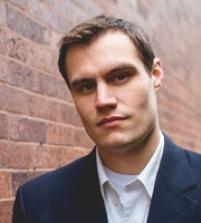
Are Vaccine Exemptions Actually Religious?
Large-scale vaccine skepticism is a new phenomenon, but is it a religious phenomenon?
In recent months, there has been a great deal of debate about religious exemptions to COVID-19 vaccine requirements. Legal scholars have discussed whether these religious exemptions are precedented and ethicists have discussed whether or not they are wise. Another question that has been debated is whether or not these requests for religious exemptions are, in fact, religious, or whether people are simply using First Amendment laws as a pretext to get out of vaccine requirements.
As a recent study shows, 10% of Americans believe that getting the COVID-19 vaccine conflicts with their religious beliefs. While there has been religiously motivated vaccine opposition in the past, it came mainly from comparatively small religious groups. By contrast, for the COVID-19 vaccines, the majority of Americans seeking religious exemptions are either evangelicals or conservative Catholics. In September, almost a third of American Protestants said they were unvaccinated. Though more Christians in the United States became skeptical of vaccines in the 2000s, the number of mainstream Christian denominations seeking religious exemptions in the past year is astonishing. As Stanford’s Michelle Mello observes, “the group of people who is opposed to the vaccine now is just orders of magnitude larger than it has ever been for any other vaccine, and much broader in its reach across different religions or different age groups. It’s a new phenomenon.”
Large-scale vaccine skepticism is a new phenomenon, but is it a religious phenomenon? As The New York Times’s Ruth Graham reports, evidence suggests “most objections described as religious to vaccines are really a matter of personal — and secular — beliefs.” In an article titled “Religious Opposition to Vaccines Is Rooted in Politics, Not Tradition,” UVA’s Evan Sandsmark argues that vaccine refusal among Christian conservatives has more to do with their politics than their religious convictions. “If they look to the moral reasoning and sources of authority within their traditions,” Sandsmark writes, “they will hear a message on vaccines that differs considerably from those on offer by many Republican leaders.”
Sandsmark is not alone in pointing out that Christianity is not an anti-vax religion. Numerous Christian leaders, including Pope Francis, have made public statements in favor of vaccination, and many scholars have debunked and dismissed the claims of those who say their Christian faith precludes them from getting vaccinated. As Curtis Chang writes, “Within both Catholicism and all the major Protestant denominations, no creed or Scripture in any way prohibits Christians from getting the vaccine.” Berry College’s David Barr puts the point sharply, “When Christians claim a religious exemption to this vaccine mandate because they don’t want to take it, the biblical term for what they’re doing is ‘taking the Lord’s name in vain.’”
These commentators, among others, cast doubt on the notion that vaccine skepticism among Christians derives from believers’ religious commitments, with Sandsmark suggesting that it’s more a matter of “political identities” and Mello saying it’s “something that looks more ideological.” This conclusion is justified, but before we decide whether these exemption requests are or are not “religious,” we need to reflect on the biases that affect how the term “religious” gets applied.
For centuries, there has been a tendency to identify as “religious” any practices that seem similar to the religious practices found in the observer’s own culture. When the category of “religion” as we know it came into currency in modern Europe, people were more likely to identify behavior as “religious” if it paralleled their own religious practice. Thus, as several authors have argued, post-Enlightenment Protestant Christianity became the yardstick against which all other cultures were measured, and something became “religious” to the degree it measured up. Hence, if one argues that vaccine skepticism does not have a biblical basis and therefore does not qualify for a religious exemption, one is presupposing that justifying behaviors with a sacred text makes something religious, and this is not a feature shared by all religions. The metrics by which we intuitively assess whether something is religious presume a post-Enlightenment Protestant framework that may be more misleading than clarifying... even when the phenomenon in question is happening among post-Enlightenment Protestants.
Christian commentators who insist that vaccine refusers’ motivations are “not religious” might be right, but it’s possible that what they’re really saying is that it does not measure up to orthodox Christianity as the commentator understands it. Even a heretical belief can be religious. It must be remembered that there are two separate questions: is vaccine refusal a legitimate conclusion from Christian doctrines, and are Christians who refuse the vaccine on religious grounds sincere in their convictions?
In a recent PRRI poll, 52% of people who refuse to get vaccinated say that getting vaccinated would violate their personal religious beliefs, while only 33% say that getting vaccinated would violate their religion’s teachings. This data suggests that 19% of intentionally unvaccinated Americans, or roughly 2% of all Americans, see the COVID-19 vaccine as against their personal religious beliefs but not against the teachings of their religious group. Whether or not one views the concept of “personal religious beliefs” unmoored from authoritative teachings as a legitimate one or an oxymoron depends on the definition of religion one is working from and the paradigmatic examples of religion one uses to measure putative religious claims.
As Winnifred Fallers Sullivan argues in The Impossibility of Religious Freedom, when the law requires religious exemption requests to reflect the commitments of a religious tradition, judges must become the arbiters of orthodoxy—determining which beliefs and practices are authentically part of a religious tradition and thus deserving exemption. Furthermore, a one-size-fits-all definition of religion will inevitably not be flexible enough to accommodate millions of people’s actual religious commitments which may not fit the paradigm. But on the other hand, if we acknowledge as religious whatever commitments individuals identify as religious, then we are allowing people to decide which laws they want to obey and which laws they are exempt from. This dilemma is not merely a problem for adjudicating the legal status of exemption requests, but also in our everyday efforts to make sense of the role religion plays (or does not play) in vaccine refusal.
Among the thousands of American Christians seeking religious exemptions, some are disingenuously using their faith as a pretense for vaccine refusal, others are expressing their tenuous interpretations of the teachings of Christian faith, and others are invoking their own personal religious commitments while acknowledging that these commitments are not shared or supported by their religious authorities. The question of whether this “new phenomenon” of large-scale religious exemption seeking is religious or political is thus slippery, both because of the ambiguities in the category of religion and in the diversity of exemption-seeking Americans.


